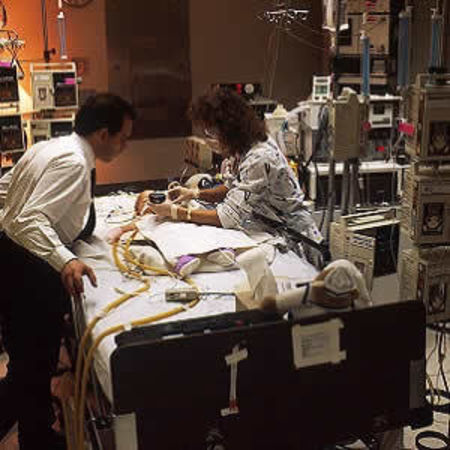A new set of evidence-based guidelines for promoting family-centred care in neonatal, paediatric, and adult ICUs has been introduced at this year's Society of Critical Care Medicine's (SCCM) 46th Critical Care Congress. The guidelines, as well as supporting work tools, are now available on the SCCM and Critical Care Medicine websites.
See Also: New App: Connecting Family with Loved Ones in ICU
There's growing evidence showing that family-centred care may prevent or reduce the impact of post-intensive care syndrome – lingering physical and mental health effects that can occur in family members as well as patients. Based on analysis of more than 450 qualitative and quantitative studies, a multidisciplinary international expert panel developed a series of evidence-based recommendations for family-centred care in the ICU. The expert panel followed a rigorous, objective, and transparent approach to evidence analysis, including steps to incorporate the perspectives of former ICU patients and family members.
Defined as "an approach to healthcare that is respectful of and responsive to individual families' needs and values," family-centred care recognises the central importance of the family to the patient's recovery.
"Family presence, improved communication and family engagement in care may reduce post-intensive care syndrome for both patients and their family members, ultimately improving the health of our community," says lead author Judy E. Davidson, DNP, RN, FAAN, FCCM, of the University of California San Diego Health. Davidson comments. "Families in the ICU aren't visitors – they should be an integral part of the care and the care team."
The new guidelines have been endorsed by nine leading critical care and family-centred care specialty organisations in North America and Europe. The document includes a summary of the supporting evidence for each recommendation. The expert panel highlights areas for further research to strengthen the evidence base.
"One of the key findings from these guidelines is that there are many important areas of family-centred care where the evidence base is inadequate. The guidelines highlight key areas for future research," explains senior author J. Randall Curtis, MD, MPH, of the University of Washington, Seattle.
The panel, in collaboration with a task force led by David Y. Hwang MD, of Yale University, has also developed a guide to help in planning and implementing steps to improve family-centred care in ICU settings. This document lists tested resources for translating the recommendations into practice.
Source: Wolters Kluwer Health
Image Credit: Wikimedia Commons
References:
The guidelines are available on the Society of Critical Care Medicine's ICU Liberation website.
Latest Articles
ICU, family-centred care, SCCM, post-intensive care syndrome
A new set of evidence-based guidelines for promoting family-centred care in neonatal, paediatric, and adult ICUs has been introduced at this year's Society of Critical Care Medicine's (SCCM) 46th Critical Care Congress.



























